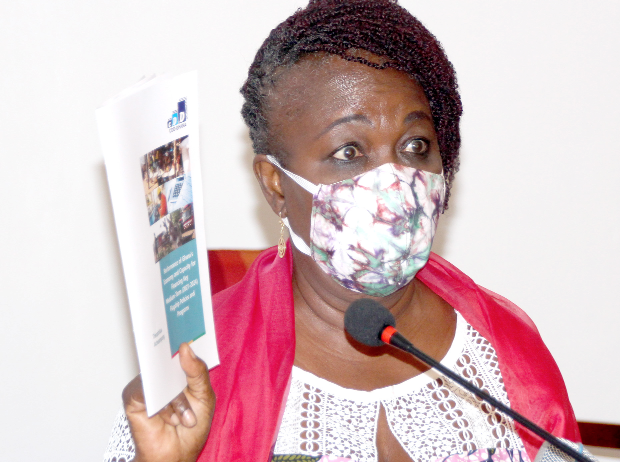
NPP, NDC manifestos lack financing information on promises — CDD
An assessment of the 2020 manifestos of the National Democratic Congress (NDC) and the New Patriotic Party (NPP) has revealed that both political parties do not have detailed information and data to support how the promises captured in their manifestos will be financed.
The assessment, which was conducted by the Ghana Centre for Democratic Development (CDD-Ghana), focused on how the manifestos of both parties responded to some key transformational and structural issues across identifiable sectors such as social protection, health, education and the economy.
The report noted that with the inclusion of potentially costly interventions and massive infrastructural developments in the education, health and road sectors and the numerous tax reliefs promised businesses in the manifestos of both political parties, it was legitimate to raise questions as to how those promises would be financed notwithstanding the adverse implications of the COVID-19 pandemic on the fiscal capacities of the State.
It suggested that with the post-COVID-19 economic forecast and fiscal space constraints in mind, both parties needed to provide more details on cost and funding options to allow citizens determine the fiscal integrity of the promises and their attendant trade-offs.
Launch
At the launch of the assessment report in Accra last Monday, the Director, Advocacy and Public Engagement, CDD- Ghana, Dr Kojo Asante, said the aim of the report was to strengthen the capacity of political parties in generating responsible, inclusive and sustainable manifesto policies and programmes and also improve the effectiveness of manifestos of political parties in addressing critical national long-term development and governance issues.
“The growing political importance of election manifestos within the context of Ghana’s highly competitive two-party system offers great promise and a rare opportunity to prioritise and address some of the structural, governance and development challenges the country faces,” he stated.
Job creation
In terms of job creation, the report observed that the employment generation measures outlined in the manifestos of both parties were mostly short term and politically driven.
Another observation of the employment generation strategy of the manifestos was the emphasis on the direct role of the government in the employment generation agenda instead of creating the needed business environment through the provision of efficient infrastructure, macroeconomic stability and quality human resource.
Health
On health, the report described as “good” the promises of both parties to increase the number of health personnel through training and employment of the backlog of health personnel awaiting employment, but added that its realisation might be constrained due to lack of required specialists to train both lower and high-level specialised medical personnel when new training facilities were established.
“A more robust and smart strategy will be needed other than just building new training institutions,” the report suggested.
Education
The report also noted that even though both manifestos promised the provision of infrastructure to enhance teaching and learning, they failed to address the issue of girl-friendly or disability-friendly school infrastructure, as about 40 per cent of basic schools had no separate toilets for girls, affecting girls’ retention and dropouts.
“Exclusion issues regarding girls’ participation in male-dominated Technical and Vocation Education and Training (TVET), disability-friendly TVET infrastructure and supply-side incentives for TVET demand are missing. The presumption that once TVET schools are constructed enrolment will increase is overly simplistic as free TVET is different from SHS, which has a surplus demand even before Free SHS was introduced,” the report said.
#GhanaVotes2020
